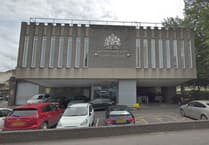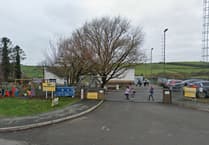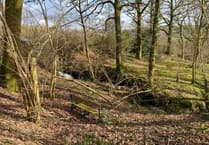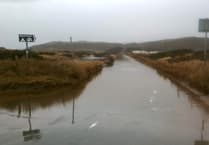PLANTING has begun on a pioneering seagrass restoration project in Cardigan Bay.
Starting this week, 340,000 seagrass seeds are to be planted at Penychain and Carreg y Defaid with the support of the community in Pen Llŷn.
The project is on course to plant five million seagrass seeds over an area of ten hectares by the end of 2026.
Those behind the restoration project say seagrass is a vital part of our response to the climate and nature crisis.
Seagrass Ocean Rescue collected 1.2 million seagrass seeds at Porthdinllaen last Summer with the help of local volunteers, with last year’s planting efforts already coming to fruition and attracting marine life to the area, as inter alia pipefish and dogwhelk eggs have been spotted on or near the newly planted seagrass.

The restored meadows will eventually create a thriving habitat which will see plenty more diverse marine life attracted to the North Wales coast. Restoration will continue at selected sites on the coast of Pen Llŷn and Ynys Môn this spring.
Instrumental in the success of the project so far has been the involvement of young people from the community who will be joining the planting again this year.
Penny Nelson, Ocean Recovery Advocacy and Policy Manager at WWF Cymru, said: “We are delighted that the project is on track to bring this vital habitat back to Welsh seas so it can help us mitigate the impact of the climate and nature crisis. We look forward to seeing the plants develop into thriving meadows within the next decade to provide a home for our coast’s spectacular marine wildlife.”
“The UK has lost up to 92% of its seagrass meadows in the past century but excitingly, we are already seeing our pioneering project mirrored across the UK. We hope that, alongside much needed policy change, these on the ground projects could soon begin to see much of this lost seagrass restored - which will have a hugely positive impact on our marine environment.”
Dr Richard Unsworth, Chief Scientific Officer on the project at Swansea University and Director of the conservation charity Project Seagrass, added: “We are so grateful for the support of the local community and volunteers. It is vital to the success of the project to choose sites that not only work from an ecological perspective but also have local support.
We hope local people will become custodians of a future thriving seagrass meadows which will in turn benefit the community. Healthy Seagrass meadows can help protect communities from the impacts of coastal erosion and flooding and help improve water quality.

Nia Hâf Jones, Living Seas Manager at North Wales Wildlife Trust, said: “It’s fantastic to know that so many of the seeds that have been collected by young people and community groups over the last few summers will be planted over the next few months. It’s been incredible to see how the young people already involved in the programme have so quickly become confident advocates for seagrass and conservation. We’re excited to see how many of them will take these skills forward to advance marine conservation in their local area and potentially further afield.”




